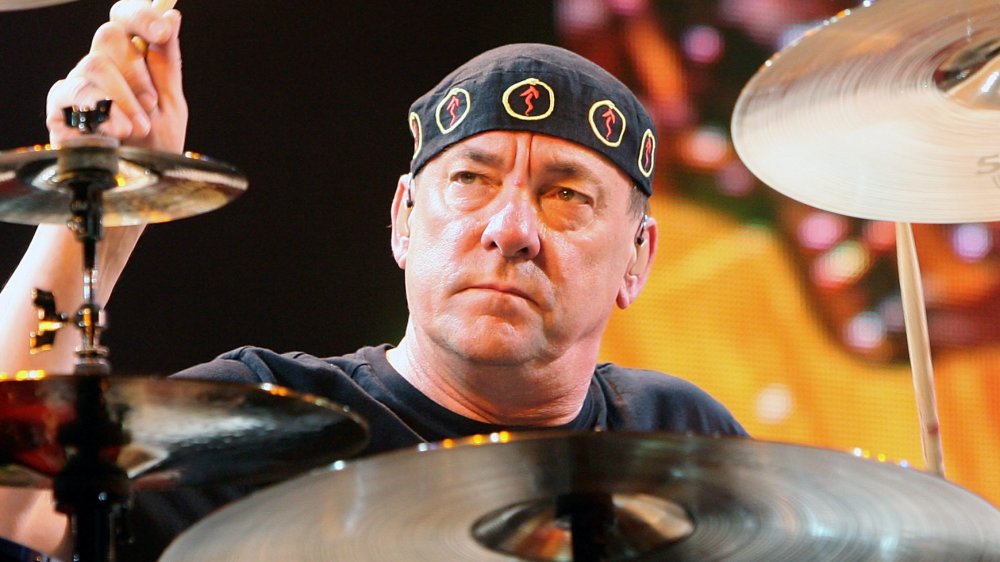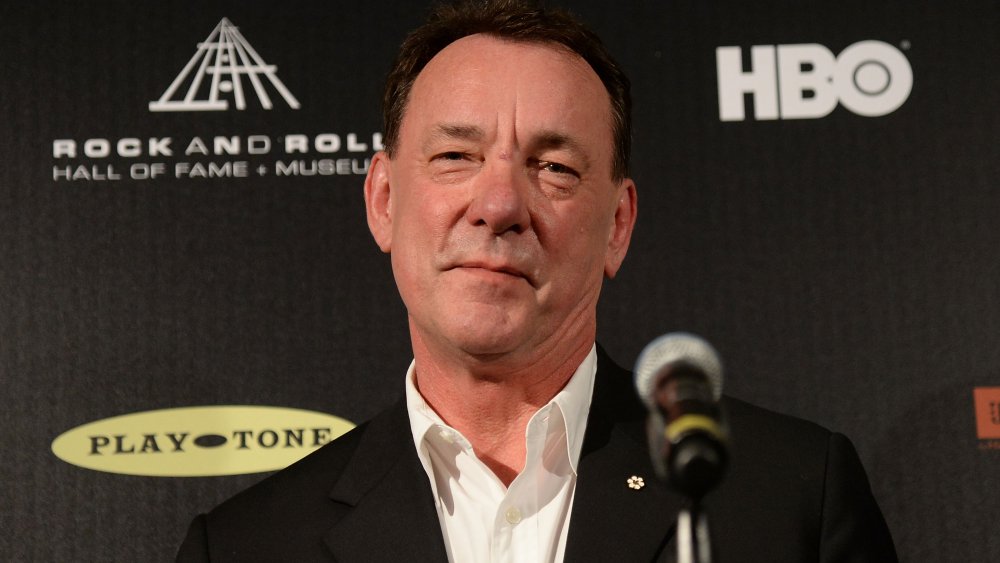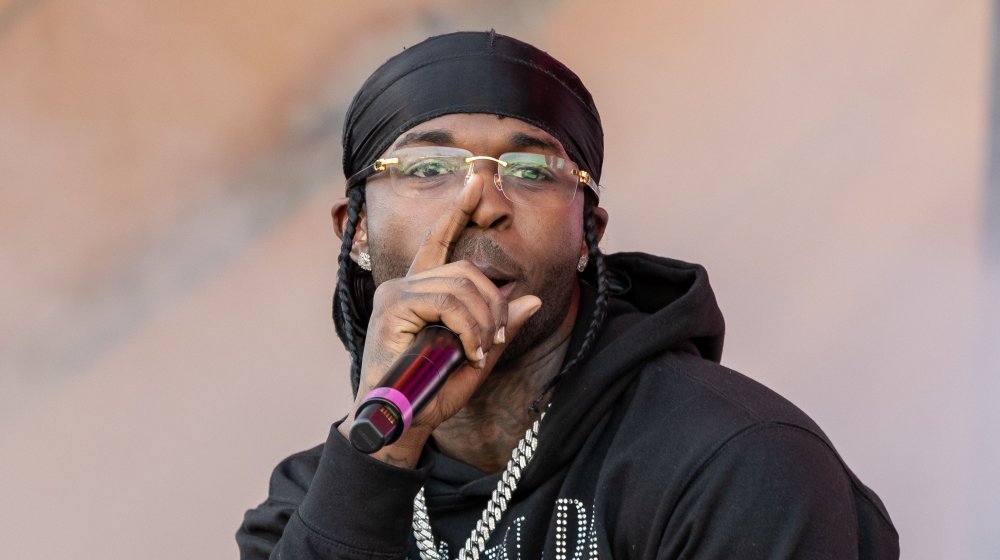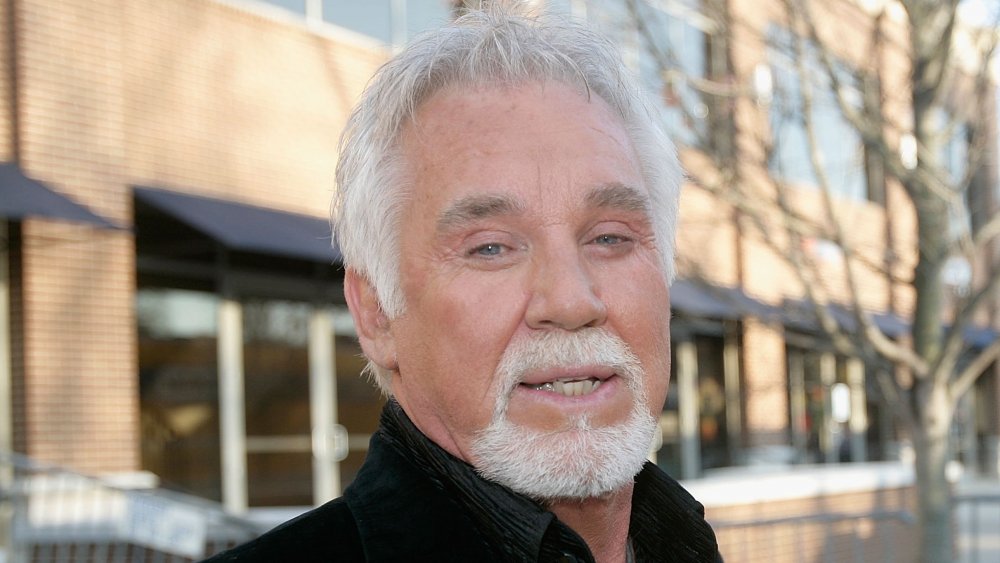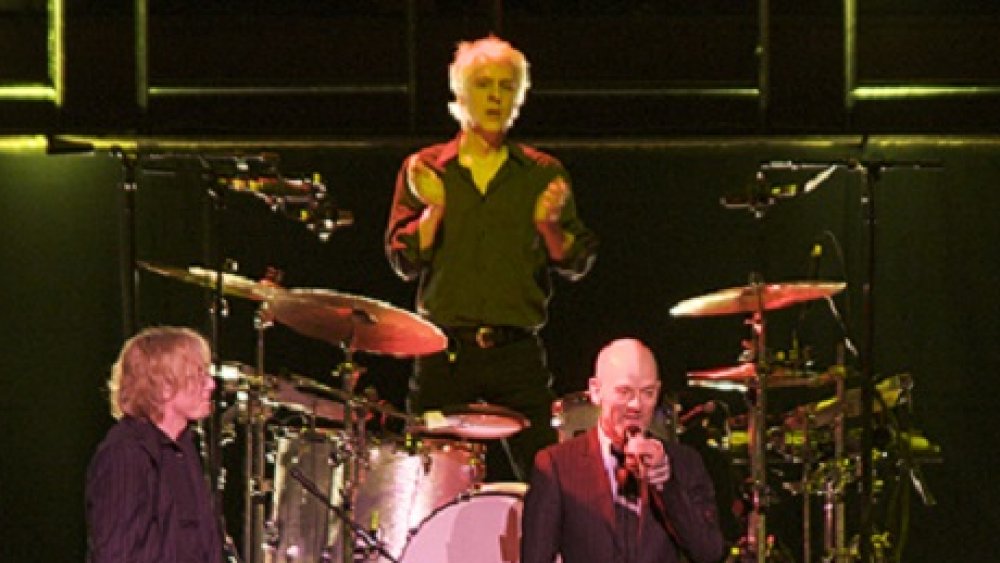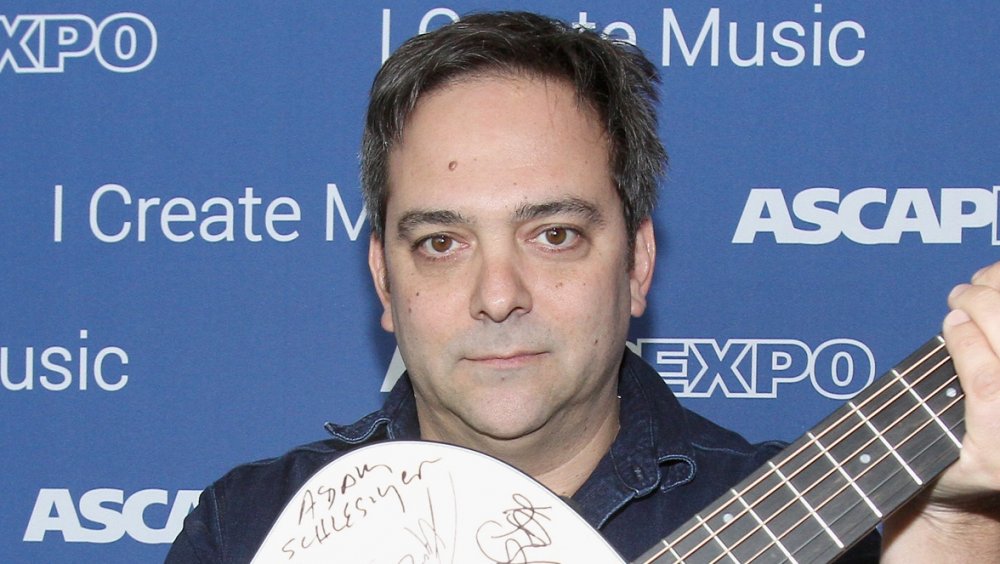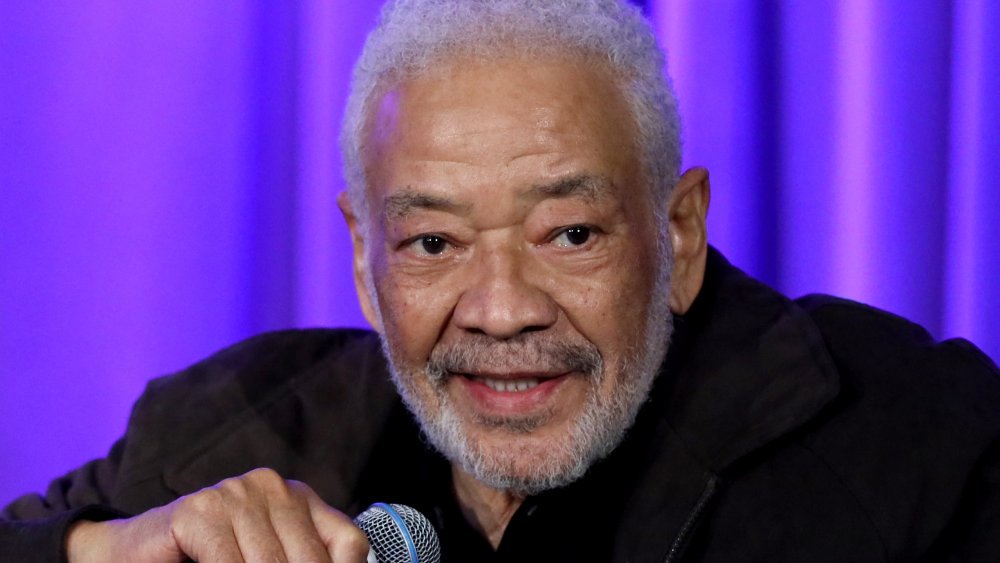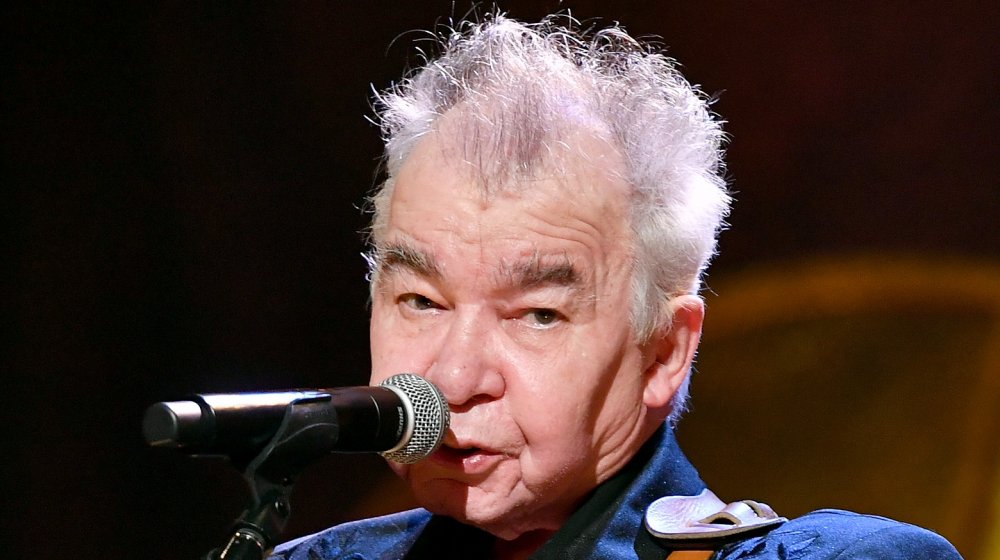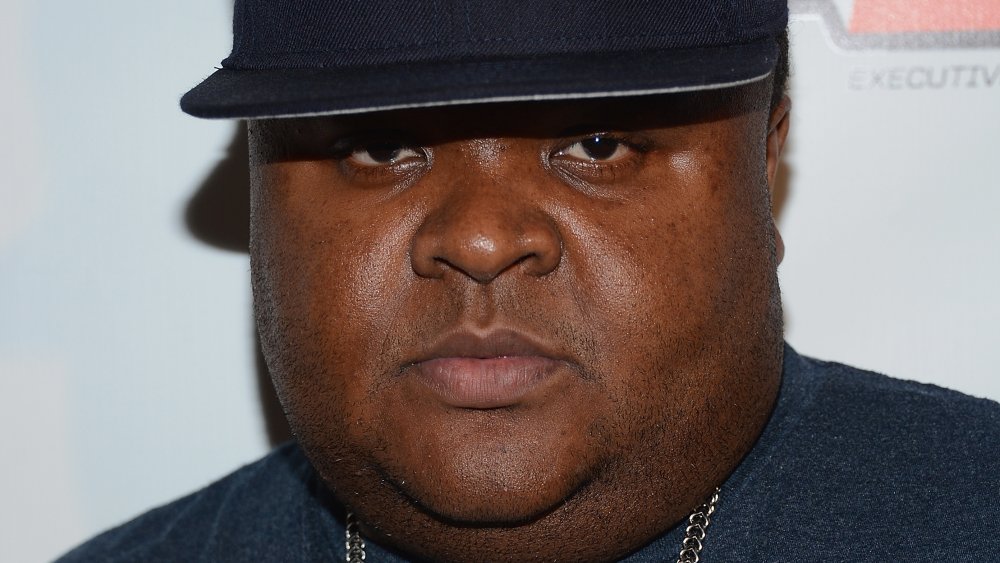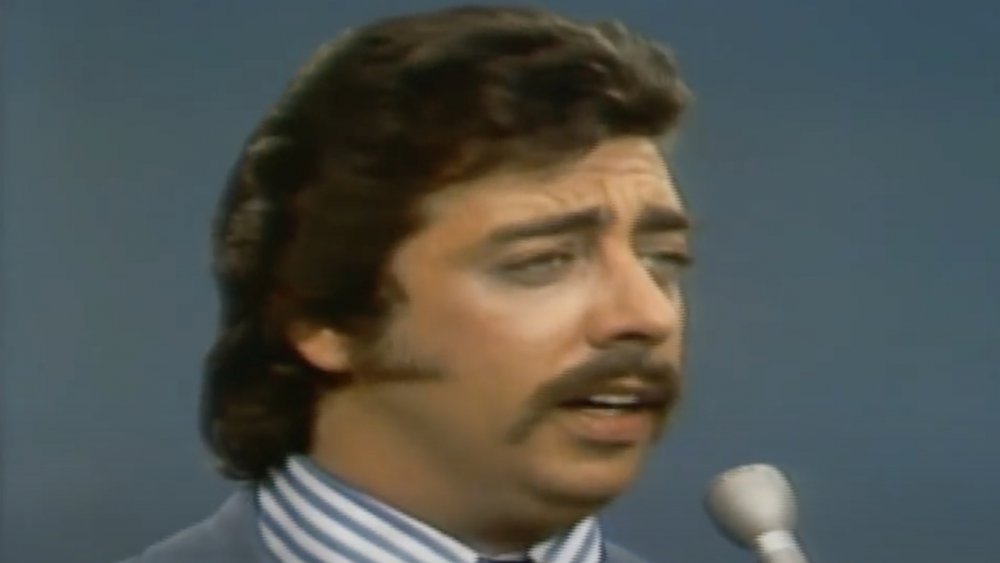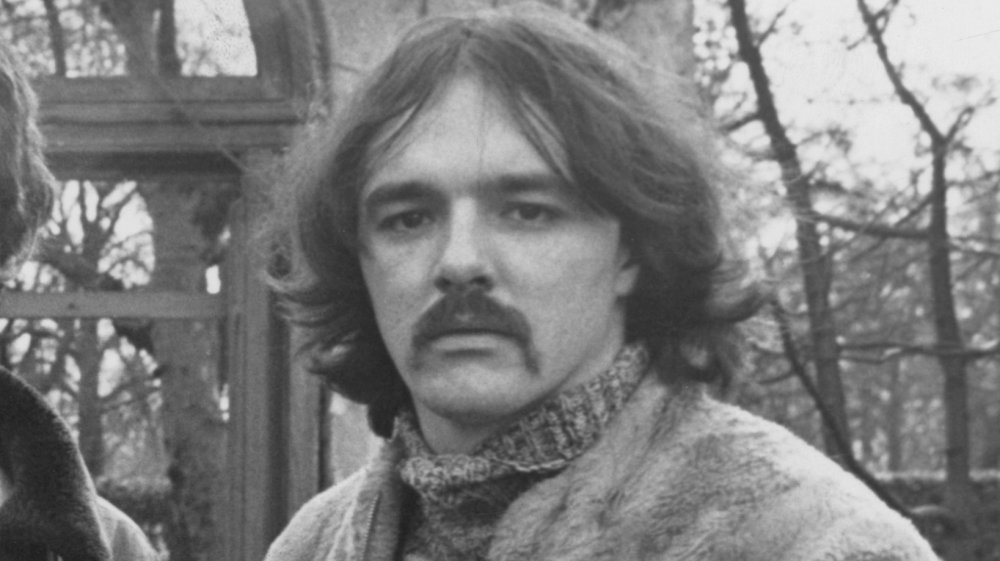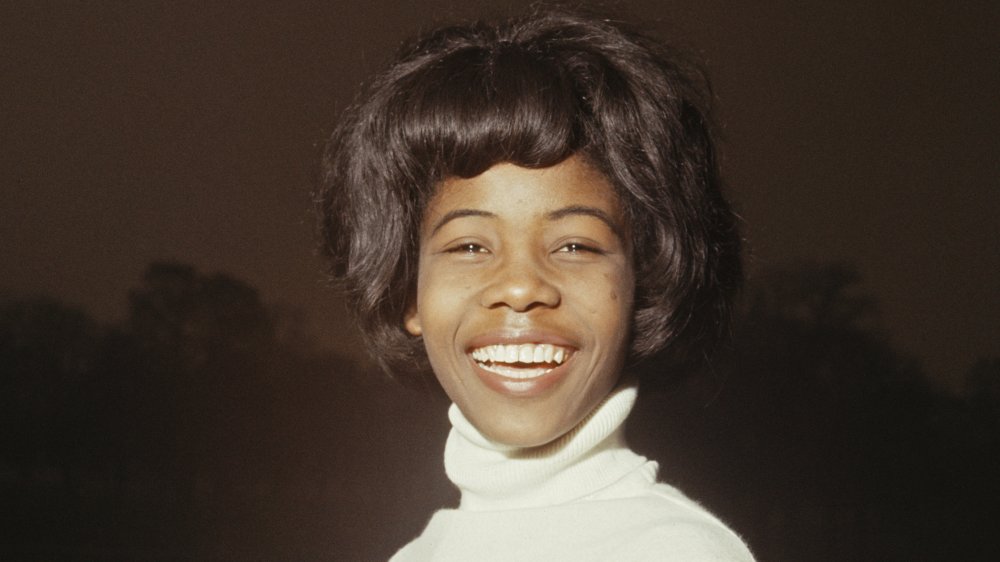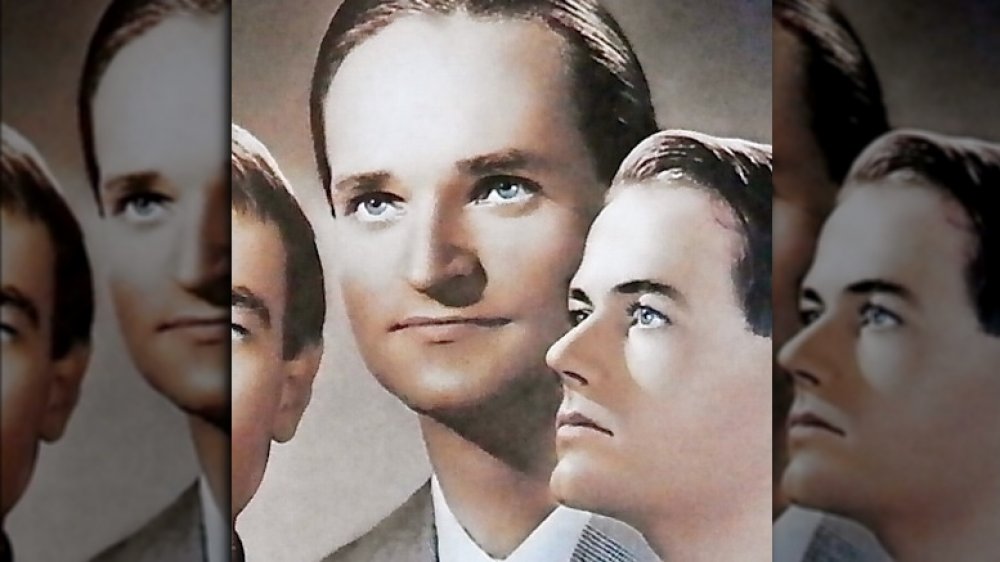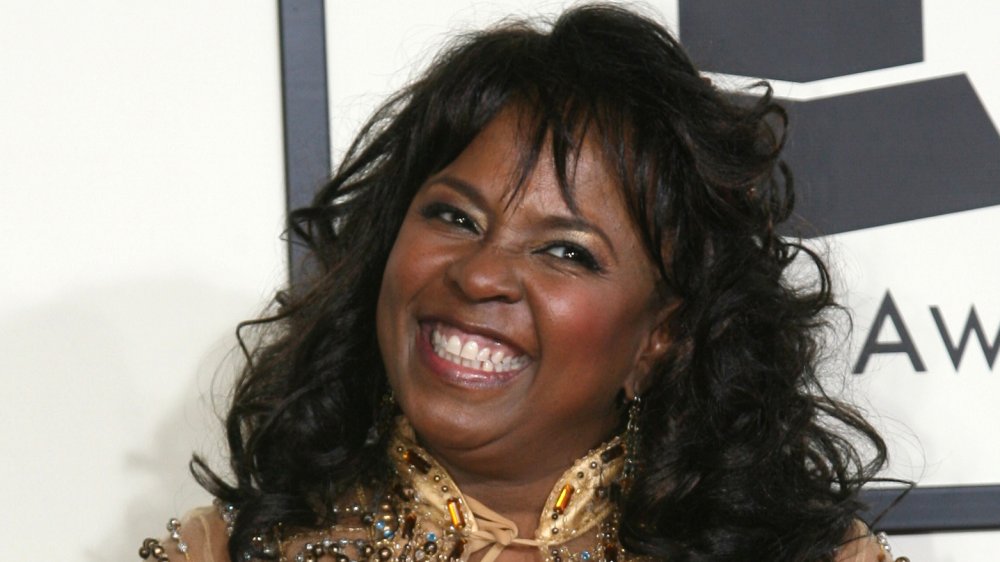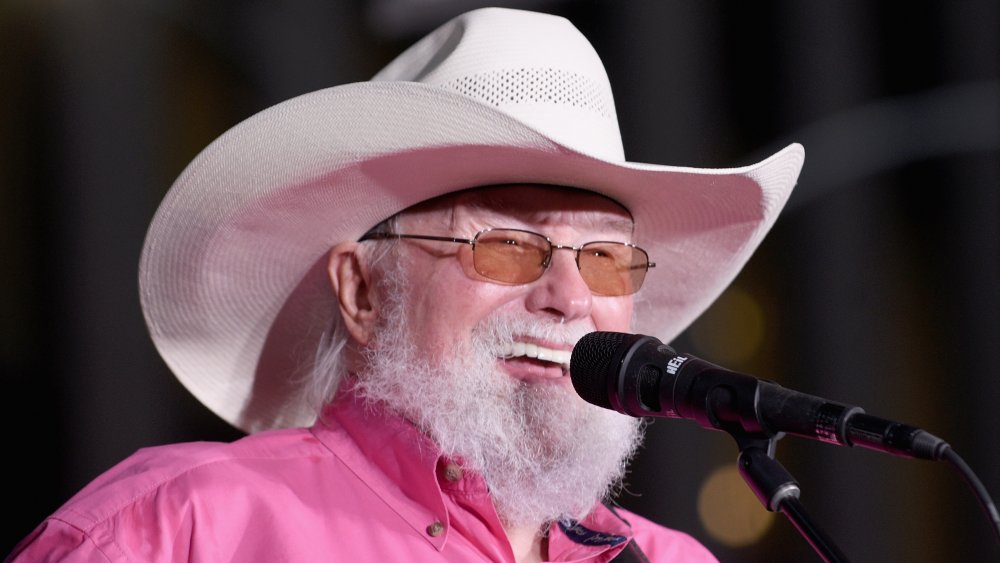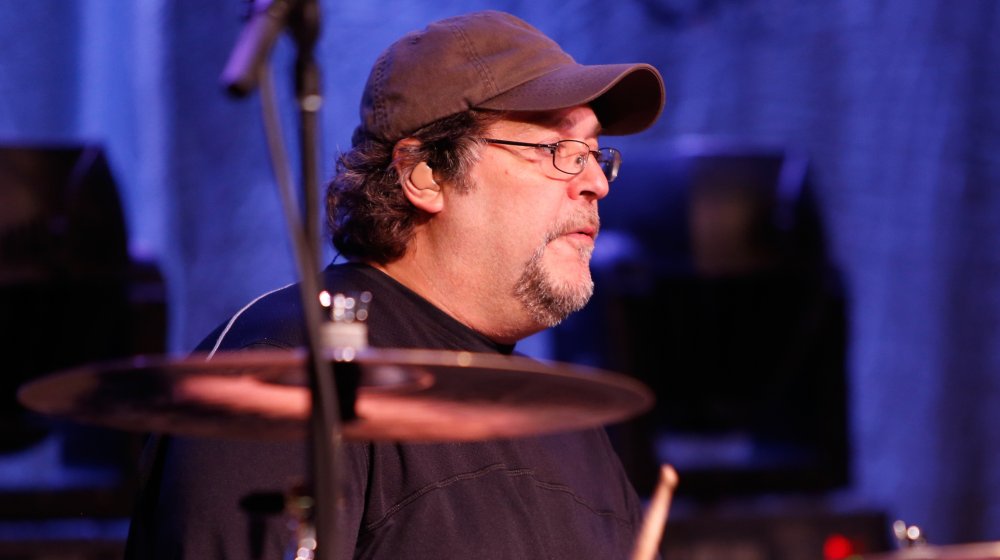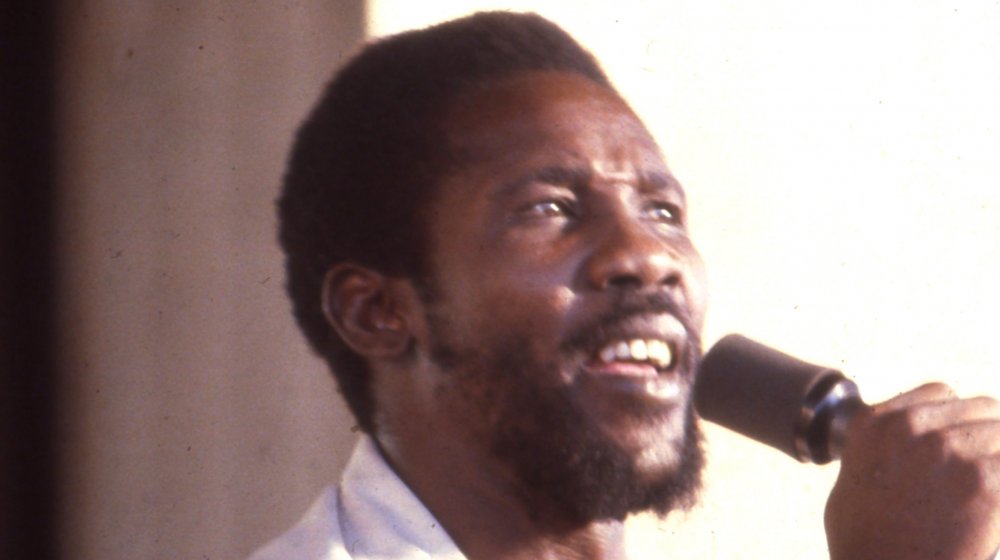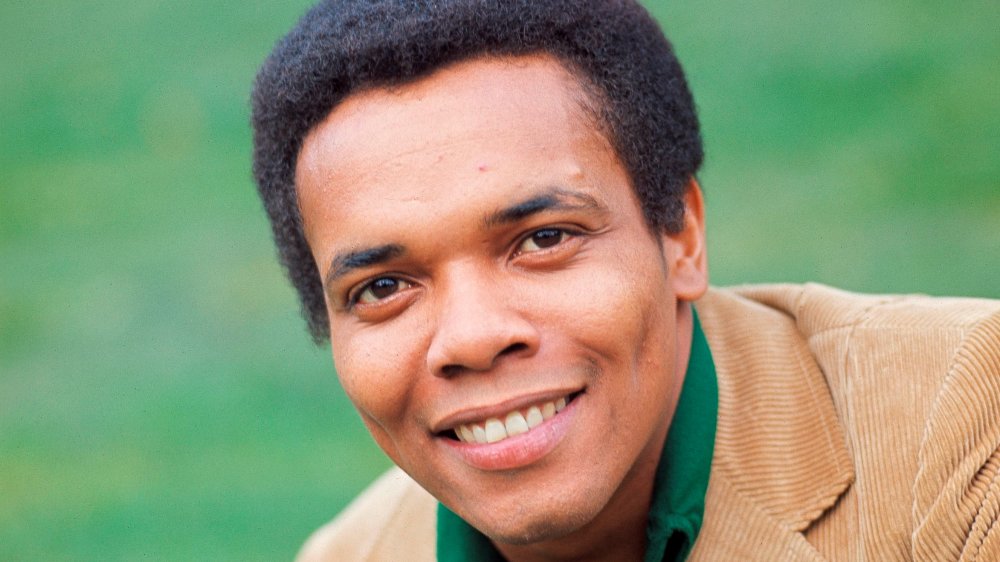Musicians We Lost In 2020
Musicians are the mouthpieces of humanity, sharing ideas and feelings through their lyrics and melodies that the rest of us maybe can't express. That's why their work feels so much more personal and special than that of any other medium. As a result, the deaths of major musicians — pop singers, rock stars, country greats, and rappers — are always difficult for the public to process. It's hard to say goodbye to the people who made the art and culture that define us and speak to us.
Dealing with their deaths can also be tricky because many of these figures have been around for as long as we can remember, and a world without them is an unknown entity. On the flip side, if they're a rising star cut down during or even before their prime, it hurts to think about all the wonderful music they never got to make and we'll never get to hear. Sure, the songs and albums they made will last forever, but the people who made them won't and can't. For while they're special people, they're still people nonetheless. Here are the major musicians who took off for that great gig in the sky in 2020.
Steve Martin Caro walked away in 2020
In the late '60s and early '70s, a new subgenre of rock 'n' roll called "baroque pop" took hold. It combined parts of classical music — harpsichords, orchestral instruments, complicated melodies — with rock 'n' roll rhythms and techniques, and nobody did it better than the American band known as the Left Banke.
In 1966, the band scored its first and only two hit singles, but they were huge ones — the #5 smash "Walk Away Renee" and the #15 charting "Pretty Ballerina." A big part of that band's influential sound came from the lush, passionate vocals of lead singer Steve Martin Caro. A true '60s band, the Left Banke split up in 1969 after recording two albums, although they regrouped for the occasional reunion. The band's former manager, Marg Finn, confirmed to Pitchfork that Caro (he added his real last name after going by just Steve Martin until the rise of the same-named comedian) passed away from heart disease on January 14, 2020. He was 71.
Neil Peart was a rock 'n' roll legend
Easily one of the greatest rock drummers of all time — and certainly the most technically proficient one — Neil Peart's precise pounding on the kit for Rush propelled the band to a career that made them heroes to a legion of devoted fans. Plus, it helped earn them a spot in the Rock and Roll Hall of Fame. Not merely keeping the beat for bandmates, Peart's tricky, complicated, unpredictable rhythms were as much a part of the band's heavy sound and philosophy-and-sci-fi vibe as bandmate Geddy Lee's howl or Alex Lifeson's guitar solos. Peart provided hooks and riffs, particularly on eternal rock radio staples like "Tom Sawyer," "Limelight," and "The Spirit of Radio." (And Peart wrote the lyrics to all those songs and lots more.)
Peart joined his fellow Canadians in Rush in the mid-'70s, after its unsuccessful first album, and he took the band to the next level, helping to sell more than 25 million copies in the U.S. alone of albums like 2112, Hemispheres, Permanent Waves, and Moving Pictures. In 2018, Lee confirmed that Peart had retired from drumming, and in January 2020, the 67-year-old rock legend passed away after quietly battling brain cancer for more than three years.
Pop Smoke was killed right as his career was taking off
Rapper Pop Smoke (born Bashar Barakah Jackson) was a major player — if not the first well-known participant — in the growing "drill" movement coming out of Brooklyn, which melds trap beats with especially dark and challenging lyrics. In 2019, he released his first long-form project, Meet the Woo, with the follow-up Meet the Woo 2 debuting in February 2020 and hitting #7 on the Billboard album chart. He was a rapper on the rise, thanks to breakout hits like "Welcome to the Party," "Dior," and "Gatti."
Pop Smoke was residing in a Los Angeles home that he was renting from Real Housewives of Beverly Hills star Teddi Mellencamp when, in the early morning hours of February 19, 2020, a group of suspects broke in and shot the young rapper. He died a few hours later at a Los Angeles hospital. Initially thought to be tied to a string of home robberies in the area, police later theorized that Pop Smoke was specifically targeted in the attack. The musician was only 20 years old.
Lexii Alijai passed away far too young
Being a musical innovator was the family business for Minnesota rapper and singer Lexii Alijai. After all, her grandfather was the late Roger Troutman, leader of the '80s synth-funk band Zapp. It's hardly surprising then that Alijai started recording and releasing music on a professional level when she was still a child. To celebrate her sixteenth birthday in 2014, she dropped her first of four mixtapes, Super Sweet 16's. Within a two-year span, she'd go on to appear on Kehlani's Grammy-nominated mixtape You Should Be Here (and its hit single "Jealous") and play at the major Soundset Music Festival alongside the likes of Post Malone and Kendrick Lamar.
On the morning of New Year's Day 2020, Alijai died at the Minneapolis hotel where she'd been living. According to a report issued by the Hennepin County Medical Examiner's Office, the musician died from an accidental, toxic combination of alcohol and the powerful painkiller fentanyl. She was 21-years-old.
Kenny Rogers delighted millions through the years
There isn't a musician more synonymous with the late '70s and early '80s than Kenny Rogers. He was at the forefront of two of the era's biggest musical phenomena, pop-country and soft rock. And the gentle-voiced troubadour often sat near the top of the charts with twangy tunes like "Coward of the County" and "Islands in the Stream" (with frequent duet partner Dolly Parton) and ballads like "Lady" and "Through the Years."
However, Rogers' success wasn't confined to just that time period. In the late '60s, his psychedelic rock band, the First Edition, scored a huge hit with "Just Dropped In (To See What Condition My Condition Was In)." He also produced numerous country and lite-FM standards, such as "You Decorated My Life" and the theme song to The Gambler, the first in a series of made-for-TV Westerns in which he starred. He also discovered Don Henley, made millions as a Dole spokesman, and lent his image and support to the chicken chain Kenny Rogers Roasters. And he did it all while maintaining that enviable white beard.
In 2018, Rogers, sensing that he was starting to lose his prodigious musical gifts and looking to spend more time with his family, retired from music, ultimately cutting short his farewell "Gambler's Last Deal" tour. Less than two years later, and after a period in hospice care, Rogers died on March 20, 2020, in his sleep. "The Gambler" was 81.
Bill Rieflin propelled both Ministry and R.E.M.
Bill Rieflin wasn't a household name drummer like the late Keith Moon, John Bonham, or Neil Peart, but that doesn't really matter. Over the last four decades, he made a major impact on rock music and how the drums are played through his work with several iconic (and disparate) bands.
After playing with a few bands in his native Seattle in the '70s and early '80s, Rieflin joined the band Ministry, at first a New Wave, electro-pop outfit that evolved into one of the most important pioneers in the genre of industrial music. Rieflin kept up the band's frenetic pace from behind the kit on classic, cleverly titled albums like The Mind is a Terrible Thing to Taste and Psalm 69: The Way to Succeed and the Way to Suck Eggs. As one of industrial's biggest drummers, Rieflin moonlighted, too, playing on occasion for KMFDM, Revolting C****, and Nine Inch Nails. Rieflin could do more than just loud, fast, and heavy — he also did percussion for the experimental band Swans, according to the Seattle Times. When founding member Bill Berry left R.E.M., Rieflin became his semi-permanent replacement from 2003 to 2011, both performing live and drumming on the band's final three albums. After that, Rieflin moved on the classic progressive rock band King Crimson.
According to Rieflin's family (via Billboard), the drummer passed away after an eight-year struggle with cancer. He was 59.
Joe Diffie was bigger than the Beatles in '90s country
In the country music boom period of the early '90s, Joe Diffie was a consistent presence, a staple of both radio and CMT alongside Garth Brooks, Shania Twain, and Billy Ray Cyrus. While his records packed the slick sheen and rollicking vibes indicative of country music of the era, Diffie had a twangy voice that earned comparisons to old-time crooners.
Born and raised in Oklahoma, Diffie honed his singing and songwriting skills in gospel and bluegrass groups and playing by himself in countless honky-tonks before moving to Nashville in 1986 with an ultimatum to "make it" within five years time, reports Rolling Stone. By 1988, stars like Hank Thompson were record Diffie compositions and by 1990, Diffie had released his first major label album, A Thousand Winding Roads. An instant sensation, Diffie racked up hit after hit in the early '90s, number-one, era-defining smashes like "Third Rock From the Sun," "Home," "Pickup Man," and "Bigger Than the Beatles."
In March 2020, Diffie tested positive for the novel coronavirus, which spread the respiratory illness called COVID-19 around the world in pandemic numbers. Diffie succumbed to complications from the sickness on March 29, 2020 at age 61.
Pure pop perfection sprang from Adam Schlesinger like a fountain
Fountains of Wayne emerged in the post-grunge, late '90s alternative rock scene with catchy hits like "Radiation Vibe" and "Sink to the Bottom," but then had an inescapable smash hit in 2003 with "Stacy's Mom," a throwback of a power pop gem about a teenage boy crushing on his girlfriend's mother. The song contained all the hallmarks of what made band member and chief songwriter Adam Schlesinger's work so special — wry humor and hooks galore.
Outside of Fountains of Wayne, Schlesinger had another band called Ivy, but he was primarily known for his work in film and television. The 1996 Tom Hanks movie That Thing You Do! is about a 1960s pop-rock band that becomes a one-hit wonder thanks to a monstrously ear-wormy single — Schlesinger wrote it, for which he received an Oscar nomination). He was also responsible for tunes in the music business comedies Music and Lyrics and Josie and the Pussycats and produced music for the likes of the Monkees and They Might Be Giants. Schlesinger's prodigious talents, prolific outlets, and sense of humor prepared him well for his most ambitious project: Crazy Ex-Girlfriend. The CW's musical comedy series featured a couple original songs every episode — and Schlesinger helped write 157 of them in all.
On April 1, 2020, Schlesinger died after struggling with complications related to COVID-19. He was 52.
Bill Withers was a soul legend
Few singers could convey deep, aching emotion in a song the way Bill Withers could. The soul legend sweetly and honestly sang multiple soul, pop, and soft rock classics that touched on many different sides of love, from the friendship anthem "Lean on Me" to the sultry "Lovely Day" as well as the sweet "Just the Two of Us" and the heartbreaking "Ain't No Sunshine." After a stint in the U.S. Navy and a job in an airplane parts factory, Withers was inspired by Lou Rawls to get into music; he bought a used guitar, taught himself to play, and started writing songs. His demo found its way to Sussex Records and in the early '70s, Withers' work hit the charts, particularly "Lean on Me," a #1 hit for three weeks in 1972.
Tiring of life on the road, the burdens of fame, and dealing with untrustworthy people on the business and corporate side, Withers made a voluntary exit from the music industry. Battles with his label kept him out of the studio from 1978 to 1985, when he recorded his eighth and final album, Watching You Watching Me. He retired from music save for occasional appearances like his 2015 induction into the Rock and Roll Hall of Fame.
According to a statement from Withers' family, the singer-songwriter suffered from heart problems, which lead to his death on March 30, 2020, at the age of 81.
John Prine was among the finest singer-songwriters ever
Among the most respected American musicians of the last half-century or so: Bob Dylan, Bonnie Raitt, and Johnny Cash. And they all just wanted to make music like John Prine made music. Dylan once said the country-meets-folk-meets-rock-meets-America singer-songwriter wrote "beautiful songs." Raitt said Prine's songs changed her life. In his autobiography, Cash said he listened to Prine when he needed songwriting inspiration. Discovered in a small empty club by Kris Kristofferson, Prine released his first of more than a dozen albums in 1971, full of his trademark poetry and wit. Among Prine's contributions to music are songs like "Illegal Smile," "Angel from Montgomery," "All the Best," and "Spanish Pipedream." Always a unique musician who did things his own way, Prine became one of the first major artists to start his own label, Oh Boy Records.
Due to a cancer diagnosis in the late '90s, Prine surgically lost part of his neck, permanently changing his voice from crisp and bright to raspy and haunting but no less vital. In 2019, the Songwriters Hall of Fame welcomed Prine, and in January 2020, he received the Grammy Lifetime Achievement Award.
On March 26, 2020, Prine was hospitalized for symptoms related to COVID-19. On April 7, he succumbed to the devastating illness and passed away. Prine was 73.
Matthew Seligman played bass for numerous important '80s acts
Toward the end of the brief but influential run of the post-punk/New Wave/minority psychedelic Soft Boys, bassist Matthew Seligman joined the group, adding what band leader Robyn Hitchcock called "joyous and funky" playing to the seminal Underwater Moonlight album. Soon after that LP's release, the Soft Boys broke up, freeing Seligman to become one of the hardest working bass players in New Wave and the burgeoning genre of alternative rock. Not only did he play with David Bowie on the synthy Labyrinth soundtrack, but he was the guy singers breaking away from their notable bands turned to when they needed a bassist, including Peter Murphy of Bauhaus, Alex Chilton of Big Star, Morrissey of the Smiths, Chrissie Hynde of the Pretenders, and Robyn Hitchcock of the Soft Boys.
In April 2020, Seligman was admitted to St. George's Hospital in London with symptoms of the novel coronavirus, or COVID-19. After being placed on a ventilator for two weeks while in a medically-induced coma, he suffered a massive stroke on April 17, and passed away later that day. Seligman was 64.
Fred the Godson was a rising star in New York hip-hop
In 2010, Bronx rapper Fred the Godson (born Frederick Thomas) looked to the past to map out his future, releasing the mixtape Armageddon, according to NPR. In addition to sampling a Notorious B.I.G. song, it featured guest shots from Busta Rhymes and Cam'ron. The tape was so popular in the hip-hop scene that it earned Fred a spot on the cover of XXL as part of its lauded "Freshman Class" feature in 2011, alongside luminaries like Meek Mill, Mac Miller, and Kendrick Lamar. Fred followed up the exposure with the well-received mixtape City of God, although he never signed a major-label deal, going the indie mixtape route but still frequently guesting on hip-hop radio shows. He had been remarkably prolific as of late, releasing four projects since 2017, including Payback in March 2020.
On April 6, 2020, Fred the Godson announced that he'd been hospitalized for symptoms of the coronavirus, tweeted a picture of himself in an oxygen mask and reporting that he was dealing "with this Covid-19 s***!" Sadly, the rapper never fully recovered and succumbed to the effects of the virus on April 23. He was 35.
Harold Reid went low for the Statler Brothers
Nobody in the The Statler Brothers was actually named Statler, and only two of them were brothers. And yet the four voices so naturally blended and complemented each other, propelling the act to a Country Music Hall of Fame-level career as one of the all-time great vocal groups. Perhaps none of the distinctive Statler voices was more recognizable than that of Harold Reid, who had an impossibly deep set of pipes. In 1965, the band scored a top 5 hit on both the Billboard country and pop chart with "Flowers on the Wall," a bouncy, jangly ode to boredom that prominently featured Reid's baritone voice. That song endured a second life after being featured in the 1994 film Pulp Fiction, while Reid and his fellow Statlers continued to chart major country hits into the late '80s before hosting the popular Saturday night variety program The Statler Brothers Show on cable TV from 1991 to 1998.
According to News Leader, on April 24, 2020, Reid passed away at his home after a long struggle with kidney failure. The singer was 80.
Dave Greenfield killed it on the keys for the Stranglers
"The difference between the Stranglers and every other punk band," according to former Stranglers frontman Hugh Cornwell, was keyboardist Dave Greenfield (although he considered his group to be more of a New Wave project). At any rate, the Stranglers both predated and transcended either label.
Formed in 1974 in southern England, according to the BBC, the band demonstrated a lot of progressive rock and even baroque influences thanks to the virtuosic keyboard work of Greenfield. He wrote the Stranglers' biggest hit and signature song, the dazzling and hypnotic "Golden Brown." The tune about heroin hit #2 on the U.K. pop chart and is best known in the U.S. for its appearance on the Snatch soundtrack. The band accumulated a number of hit singles in the late '70s and early '80s driven by Greenfield's keyboard playing, including "No More Heroes," "Something Better Change," and "European Female."
According to a statement on the Stranglers' website, Greenfield passed away on May 3, 2020 after contracting the coronavirus. He was 71.
Millie Small put Jamaica on the musical map
In the early 1960s, a musical era loaded with bouncy and sunny pop hits, Millie Small was responsible for one of the bounciest and sunniest: "My Boy Lollipop," which reached #2 in 1964, according to the BBC. Small only hit the pop chart once more, with "Sweet William" later that year, but she made a major impact on the trajectory of 20th century music. The Jamaican-born singer took her country's music into the American and British mainstream with the song, one of the first well-known ska hits, which would endure in popularity for decades and give rise to reggae, too.
In 1963, Small became one of the first signees to Chris Blackwell's Island Records, later the home of U2, Jethro Tull, numerous bands performing Jamaican forms, such as Small and Bob Marley. In the '70s, Small took her music in a more political direction before retiring from music, living around the world and writing, painting, and raising a family. USA Today reported that after becoming sick in early May, the singer died on May 5 at the age of 72.
Kraftwerk's Florian Schneider helped invent electronic music
Electronic music is a normal and regular thing now, with its own tropes, rules, and countless sub-genres, but it's likely that acts like Daft Punk and Skrillex — or even '80s synth pop bands like New Order or Depeche Mode — would not have found fame and fortune had Kraftwerk not paved the way.
When the band debuted with its self-titled album in 1970, its music might as well have come from outer space, not Germany, such were the eerie sounds it made with synthesizers and other electronic instruments. In 1975, its third album, Autobahn reached #5 in the U.S. on the back of the 23-minute-long version of the hit title song. Like 1977 signature hit "Trans-Europe Express," which creepily extolled the virtues of train travel while imitating the sound of one, "Autobahn" mimicked driving on the German superhighway.
Florian Schneider formed the band in 1970 with Ralf Hütter, and steered its course for nearly 40 years and over 10 albums, playing synthesizer, vocoder, flute, and saxophone, and singing, too. Kraftwerk, and Schneider, inspired more than just bleep-and-bloop-driven music — David Bowie's instrumental "V-2 Schneider" was named for him, and a "Trans-Europe Express" sample powered Afrika Bambaata's early influential rap hit "Planet Rock." In a statement to the media, Hütter said that Schneider died in April, just after he turned 73, following a brief battle with cancer.
Good golly, Little Richard was the first king of rock 'n' roll
As a teenager, according to Rolling Stone, Richard Wayne Penniman worked the concession stand at the Macon City Auditorium and heard R&B, blues, and country acts perform. All that music mixed in his brain with the gospel he'd grown up hearing and performing to make something new and special — eventually it would be called "rock 'n' roll."
By the '50s, when he landed a record deal with RCA, Penniman had renamed himself Little Richard and his act took form: He'd thunderously play piano and sing in fevered style while sporting flashy outfits and a huge pompadour. In 1955, he recorded the first in a long string of formative rock hits: "Tutti Frutti," although he had to rewrite its original explicit lyrics. Richard quickly followed up with "Long Tall Sally," "Good Golly, Missy Molly," and "Rip It Up." At the peak of his fame in 1957, Richard announced he was quitting rock to become a Christian minister. He'd returned to the style by 1962, and while he never had another iconic smash, other major acts (the Beatles, Pat Boone) were among the many acts to record his songs and cement his legacy as a musical pioneer. Richard continued to record and tour over the decades, enjoying his status as an American original, popping up for TV cameos and in commercials.
According to reports from close associates, Richard died on May 9, 2020, after a fight with bone cancer. The legend was 87.
Betty Wright was an R&B legend
Betty Wright got her start in music when she was only 2-years-old, as part of her family's Florida-based gospel group the Echoes of Joy, according to the Guardian. By 14, she'd gone solo, and her single "Girls Can't Do What the Guys Do" became a top 40 hit. Before long, Wright was a staple of the Miami music scene, which she helped put on the American musical map with "Clean Up Woman," a soul-meets-funk smash that became her signature song. Wright scored pop and R&B hits throughout the '70s and '80s, including "Dance With Me," "Baby Sitter," "Secretary," "No Pain, No Gain," and "Where is the Love," which won her a Grammy for Best R&B Song.
Bristling under the control of major labels, Wright launched her own, Ms. B Records, in 1985, and with her 1987 album Mother Wit, became the first African-American to notch a gold album at her own company. After a couple of decades in the business, Wright moved increasingly behind the scenes. She arranged the gospel-style vocals on Gloria Estefan's comeback hit "Coming Out of the Dark," masterminded Joss Stone's landmark neo-soul album Mind, Body & Soul, and helped produce and engineer Lil Wayne's Tha Carter III.
According to a post on Wright's Facebook page from her family, the singer passed away on May 10, 2020. Per Billboard, Wright battled cancer, and was 66-years-old.
Charlie Daniels never played second fiddle
After playing with bands in the '50s and early '60s, North Carolina-born Charlie Daniels moved to Nashville in 1967 to become a session musician. He found plenty of work contributing guitar, bass, and fiddle to recordings by luminaries like Leonard Cohen, Pete Seeger, Ringo Starr, Flatt & Scruggs, and Bob Dylan – Daniels is all over the latter's seminal Nashville Skyline LP. After working as a producer and songwriter, Daniels started his own recording career in the early '70s and had a bit hit in 1973 with "Uneasy Rider," a sung/spoken story song about a long-haired hippie who gets hassled by bar toughs in Mississippi.
After releasing the partially country but mostly Southern rock album Fire on the Mountain in 1976, the Charlie Daniels Band released its signature song in 1979: "The Devil Went Down to Georgia," which concerns a boy named Johnny who wins a golden fiddle in a fiddling contest with Satan himself. The Grammy-winning, country chart-topping, #3 pop hit was really just an excuse to showcase Daniels' otherworldly fiddling skills.
Despite a series of health problems in the 2000s (prostate cancer, a stroke, pneumonia) the Country Music Hall of Famer and Grand Ole Opry member didn't slow down much, touring and recording as late as 2019. According to Daniels' publicist (via Rolling Stone), the musician passed away on July 6, 2020, at age 83 after suffering a stroke.
Blues guitarist Peter Green founded Fleetwood Mac
Years before it became the quintessential soft rock band and protectors of the chill "California" sound of the late 1970s and early 1980s, Fleetwood Mac started out as one of many British blues-rock bands of 1960s, much like John Mayall's Bluesbreakers, per Rolling Stone. When renowned guitarist Eric Clapton left that group, Mayall picked Peter Green to replace him. Two years later, Green and Bluesbreakers drummer Mick Fleetwood broke off to form a new band with another former Bluesbreaker, John McVie: Fleetwood Mac.
This first formulation of the group, which would ultimately experience many eras and major turnover, found almost immediate success. In 1968, Green's instrumental "Albatross" topped the U.K. singles chart, and follow-up "Man of the World" went to #2. Another Green-written single, "Black Magic Woman" would become legendary when covered by Santana. Sadly, Green's time with the group wouldn't last. Shortly after the release of Fleetwood Mac's third album Then Play On in 1969, Green's health faltered. He spent time in psychiatric institutions, was diagnosed with schizophrenia, joined a commune, and quit the band. Green later, albeit briefly, rejoined the Mac and then recorded a number of solo albums over the next few decades.
On July 25, 2020, attorneys representing Green's relatives told the BBC that the guitarist had passed away: "It is with great sadness that the family of Peter Green announce his death this weekend, peacefully in his sleep." He was 73.
Todd Nance founded and propelled Widespread Panic
Jam bands combine crunchy, groovy, and semi-improvised tunes with seemingly nonstop touring, engendering a special devotion from fans, who may see a group dozens of times or follow them around for a while. Along with the Grateful Dead and Phish, Widespread Panic is one of the biggest-ever jam bands.
The group, with a sound as influenced by Lynyrd Skynyrd as by Jerry Garcia, came together in the early '80s, when high school friends Michael Houser and Todd Nance teamed up with a couple of other guys at the University of Georgia. The group debuted under the name Widespread Panic at an Athens, Georgia, charity show in 1986, and they were off and running, with Nance sitting behind the kit and providing the band's rhythm and grooves as its drummer for three decades. After a two-year hiatus, he left the band in 2016 to attend to personal matters, but he still played with his other group, Interstellar Boys, as well as with Todd Nance & Friends.
Nance passed away during the early hours of August 19, 2020. According to a statement from his family (via CNN), the drummer experienced "sudden and unexpectedly severe complications of a chronic illness." Nance was 57.
Toots Hibbert helped invent and popularize reggae
Shortly after his birth in Jamaica in 1942, Frederick Hibbert earned the nickname "Toots" from his brother, and it's under this name that Hibbert would become one of the most important reggae musicians. As a teenager in Kingston, he met Raleigh Gordon and Jerry Matthias, and they formed the ska and reggae trio Toots and the Maytals. Hibbert served as frontman, a magnetic stage presence and affecting singer. In the late '60s and early '70s, Toots and the Maytals spread the idea of reggae, if not the name — their 1968 single "Do the Reggay" gave the style, a mix of soul, rock, and Jamaican forms, its name.
In 1972, two Toots and the Maytals songs appeared on the soundtrack for the hit film The Harder They Come, including the band's signature tune, the often-covered "Pressure Drop." Hibbert enjoyed a solo career in the '80s, only to reunite with the Maytals in the '90s. He remained an active reggae superstar for his entire life, heading out for a 50th-anniversary Toots and the Maytals tour in 2018 and releasing the album Got to Be Tough in August 2020.
According to Hibbert's family (via CNN), the musician was admitted to an intensive care unit at University Hospital of the West Indies in Kingston on September 3, 2020, and was administered a coronavirus test. Late on September 11, Hibbert passed away in his sleep. He was 77.
Eddie Van Halen was the world's guitar hero
Few people, if any, played the electric guitar as masterfully — or as originally — as Eddie Van Halen did. As the chief creative force and namesake of the exceedingly popular and influential hard rock chart-toppers Van Halen in the '70s, '80s, and '90s, Van Halen wowed the masses with his two-handed "tapping" guitar technique that brought speed, precision, melody, and fun to his genre. First showing what he could do on "Eruption," an instrumental on Van Halen's self-titled 1978 debut album, Van Halen's technically proficient but also gritty guitar work fueled numerous rock classics like "Runnin' with the Devil," "Panama," "Hot for Teacher," and "Right Now." (Van Halen was also a very good pianist — his band's only #1 hit, "Jump," featured the guitarist on keyboards.)
Over the past two decades, Van Halen the guitarist struggled mightily with health problems. Per TMZ, he was diagnosed with throat cancer in the early 2000s and had to have a third of his tongue surgically removed. The musician received regular radiation treatments in Germany, but by 2020, the cancer had returned and spread to his brain and other organs. On October 6, 2020, Van Halen passed away at a hospital in Santa Monica, California, his wife Janie by his side as well as his bandmates — brother Alex Van Halen and son Wolfgang Van Halen. The guitar great was 65.
It's clear to see that Johnny Nash was an influential pop star
In 1972, Johnny Nash took the reggae-pop hybrid "I Can See Clearly Now" to #1 on the American pop chart, a watershed moment in the growing popularity of the form of music just beginning to make its way out of Jamaica. By the time Nash topped the Billboard Hot 100, the Houston-native was a music industry veteran who'd tried out a few approaches already — in the '50s and '60s he was a pop crooner who scored hits with "A Very Special Love" and "The Teen Commandments." Later on, he'd embrace reggae, co-founding the label JAD Records and signing Bob Marley and Peter Tosh early in their careers. His biggest hit he kept for himself, the positive, uplifting, and enchanting "I Can See Clearly Now," reportedly written after Nash had cataract surgery. He followed that signature song with more reggae-twinged '70s hits, including a cover of Marley's "Stir It Up."
According to Nash's son, Johnny Nash, Jr., the singer experienced some health issues as of late, and on October 6, 2020, he passed away from natural causes at home, in Houston. Nash was 80 years old.
